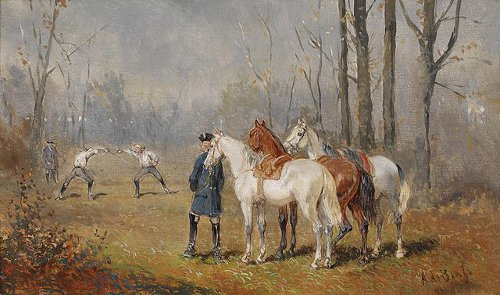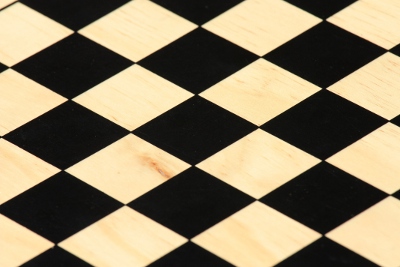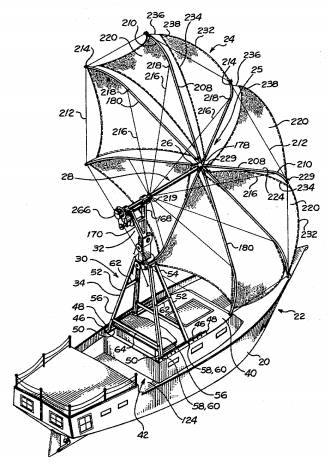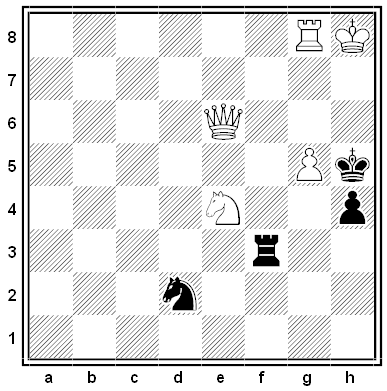Limited Lease

The earth goes on the earth glittering in gold,
The earth goes to the earth sooner than it wold;
The earth builds on the earth castles and towers,
The earth says to the earth, All this is ours.
— Inscription on the ruined gate at Melrose Abbey, Roxburghshire, Scotland
Extra Credit

In studying the parasitic protozoan Plasmodium ovale in 1954, English parasitologist William Cooper volunteered to receive the bites of about a thousand mosquitos, and nine days later underwent a laparotomy in which a piece of his liver was removed. On recovering, he stained the sections himself, located the malaria parasite stages in his own tissue, and painted these in watercolors to accompany the resulting article.
His coauthor, University of London protozoologist Cyril Garnham, wrote that Cooper “attained everlasting fame by this episode.”
(P.C.C. Garnham et al., “The Pre-Erythrocytic Stage of Plasmodium Ovale,” Transactions of the Royal Society of Tropical Medicine and Hygiene 49:2 [March 1955], 158-167) (Thanks, Andrew.)
In a Word

effigiate
v. to represent by a picture or sculpture
Swift Swords

Ben Franklin considered dueling a senseless practice, as “whichever is killed the point in dispute remains unsettled”:
To this purpose they have a pleasant little story here. A gentleman in a coffee-house desired another to sit further from him. ‘Why so?’ ‘Because, sir, you stink.’ ‘That is an affront, and you must fight me.’ ‘I will fight you if you insist upon it; but I do not see how that will mend the matter. For if you kill me, I shall stink too; and if I kill you, you will stink, if possible, worse than you do at present.’
(From a letter to Thomas Percival, July 17, 1784.)
Subtext

John Brunner’s 1965 science fiction novel The Squares of the City concerns a South American metropolis in which two opposing political leaders direct the actions of their followers using “subliminal perception.”
In an afterword, Brunner revealed that he had organized the entire plot to follow a historic chess game, Steinitz-Tchigorin Havana 1892. Each of the 32 pieces and pawns corresponds to a character in the book, and every capture in the Steinitz-Tchigorin game corresponds to an event in the plot. For example, Felipe Mendoza, representing the black king’s bishop, is killed in a duel with Luis Arrio, who represents the white queen’s knight. In the game, Steinitz captured Tchigorin’s king’s bishop with his queen’s knight on move 22.
“The individuals who correspond to the ‘pieces’ have powers roughly commensurate with those of the pawns and officers they represent,” Brunner explained. “The moves are all there, in their correct order and — so far as possible — in precise correspondence with their effect on the original game. That is to say, support of one piece by another on its own side, threatening of one or more pieces by a piece on the other side, indirect threats and the actual taking of pieces, are all as closely represented as possible in the development of the action.”
The book was nominated for the Hugo Award for best novel in 1966.
Double Duty

Peter Krovina’s “sailing system,” patented in 1981, replaces a conventional sail with an adjustable windmill — while it’s driving the boat forward, it’s also storing power in batteries.
The batteries serve the boat’s need for electricity, powering the running lights, the cabin lights, space heaters, and the cooking stove.
Best of all, they eliminate the need for an engine — an electric motor drives the screw.
Inimitable

[I]n music, unlike painting, there is no such thing as a forgery of a known work. There are, indeed, compositions falsely purporting to be by Haydn as there are paintings falsely purporting to be by Rembrandt; but of the London Symphony, unlike the Lucretia, there can be no forgeries. Haydn’s manuscript is no more genuine an instance of the score than is a printed copy off the press this morning, and last night’s performance no less genuine than the premiere. Copies of the score may vary in accuracy, but all accurate copies, even if forgeries of Haydn’s manuscript, are equally genuine instances of the score. Performances may vary in correctness and quality and even in ‘authenticity’ of a more esoteric kind; but all correct performances are equally genuine instances of the work. In contrast, even the most exact copies of the Rembrandt paintings are simply imitations or forgeries, not new instances, of the work. Why this difference between the two arts?
— Nelson Goodman, Languages of Art, 1968
Neat
A gram is the mass of one cubic centimeter of water; the earth’s gravitational attraction is approximately 10 in metric units (9.8 meters/second2); and atmospheric pressure works out to about 1 kilogram per square centimeter.
This shows that the pressure under 10 meters of water is about one atmosphere. Ten meters of water is 1000 centimeters, so a column one centimeter square would weigh one kilogram and exert a pressure of 1 kilogram per square centimeter.
(Thanks, Steve.)
The Long Way
On Sept. 19, 1927, a bedraggled woman arrived at a telegraph maintenance cabin in British Columbia. The operator, Bill Blackstock, fed her and asked where she was going. “Siberia,” she said.
Her name was Lillian Alling, and she had crossed the continent on foot since entering Canada at Niagara Falls the previous year. She said she had emigrated from Russia to New York City, where she had worked as a maid but found herself unhappy there. She had decided to return to Russia, but realized it would be impossible to save enough for a steamer ticket. After consulting a map of North America in a public library, she had resolved to walk home.
Fearing for her safety in the Yukon winter, Provincial Police constable George Wyman contrived to charge her with vagrancy. “I was so surprised to see that woman there,” he told journalist Donald Stainsby. “She was so scantily clad and had no firearms or anything to see her through that country. She was about five foot five and thin as a wisp. When I first saw her, she was wearing running shoes. She had a knapsack with a half-dozen sandwiches in it, some tea and some other odds and ends, a comb and personal effects, but no makeup. I had a time getting her name; she wasn’t going to say anything to anybody. But I finally got it, and when she said she was going to Siberia, I couldn’t say anything. I thought she was out of her mind.”
Alling was released from prison by early November and resumed her journey. She reached Nome in 1929 and headed west, having covered more than 6,000 miles in less than three years. Her trail disappears there, but there’s an intriguing postscript: When True West magazine published an article about Alling in 1972, an Arthur F. Elmore of Lincoln, Calif., wrote to say that a Russian friend of his had grown up across the Bering Strait from Wales, Alaska. In the autumn of 1930, while on an errand for his mother, he had noticed three officials questioning a woman accompanied by three Eskimos:
“He remembered the woman telling the officials she had come from America where she said she had been unable to make a living or make friends. … She said she had had to walk ‘a terrible long way because no one would lift as much as a finger to help me in any way because they didn’t want to — or couldn’t understand — my feelings. I tried to make friends at first, but everyone wanted no part of me — as a foreigner — and that so deeply hurt me I couldn’t bear it and so I began to walk. I knew it was far and it would be hard but I had to do it even if no one understood. And I did it!'”
(From Susan Smith-Josephy’s monograph Lillian Alling: The Journey Home, 2011.)

